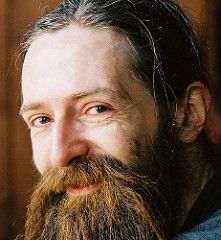Archive for the ‘biotech/medical’ category: Page 2764
Mar 24, 2011
The Existential Importance of Life Extension
Posted by Kemal Akman in categories: biological, biotech/medical, ethics, existential risks, life extension
Continue reading “The Existential Importance of Life Extension” »
Feb 17, 2011
The Global Brain and its role in Human Immortality
Posted by Marios Kyriazis in categories: biological, biotech/medical, complex systems, futurism, life extension, neuroscience
It would be helpful to discuss these theoretical concepts because there could be significant practical and existential implications.
The Global Brain (GB) is an emergent world-wide entity of distributed intelligence, facilitated by communication and the meaningful interconnections between millions of humans via technology (such as the internet).
For my purposes I take it to mean the expressive integration of all (or the majority) of human brains through technology and communication, a Metasystem Transition from the human brain to a global (Earth) brain. The GB is truly global not only in geographical terms but also in function.
It has been suggested that the GB has clear analogies with the human brain. For example, the basic unit of the human brain (HB) is the neuron, whereas the basic unit of the GB is the human brain. Whilst the HB is space-restricted within our cranium, the GB is constrained within this planet. The HB contains several regions that have specific functions themselves, but are also connected to the whole (e.g. occipital cortex for vision, temporal cortex for auditory function, thalamus etc.). The GB contains several regions that have specific functions themselves, but are connected to the whole (e.g. search engines, governments, etc.).
Continue reading “The Global Brain and its role in Human Immortality” »
Nov 19, 2010
Stoic Philosophy and Human Immortality
Posted by Marios Kyriazis in categories: biological, biotech/medical, futurism, neuroscience
The Stoic philosophical school shares several ideas with modern attempts at prolonging human lifespan. The Stoics believed in a non-dualistic, deterministic paradigm, where logic and reason formed part of their everyday life. The aim was to attain virtue, taken to mean human excellence.
I have recently described a model specifically referring to indefinite lifespans, where human biological immortality is a necessary and inevitable consequence of natural evolution (for details see www.elpistheory.info and for a comprehensive summary see http://cid-3d83391d98a0f83a.office.live.com/browse.aspx/Immo…=155370157).
This model is based on a deterministic, non-dualistic approach, described by the laws of Chaos theory (dynamical systems) and suggests that, in order to accelerate the natural transition from human evolution by natural selection to a post-Darwinian domain (where indefinite lifespans are the norm) , it is necessary to lead a life of constant intellectual stimulation, innovation and avoidance of routine (see http://www.liebertonline.com/doi/abs/10.1089/rej.2005.8.96?journalCode=rej and http://www.liebertonline.com/doi/abs/10.1089/rej.2009.0996) i.e. to seek human virtue (excellence, brilliance, and wisdom, as opposed to mediocrity and routine). The search for intellectual excellence increases neural inputs which effect epigenetic changes that can up-regulate age repair mechanisms.
Thus it is possible to conciliate the Stoic ideas with the processes that lead to both technological and developmental Singularities, using approaches that are deeply embedded in human nature and transcend time.
Oct 25, 2010
Open Letter to Ray Kurzweil
Posted by Keith Curtis in categories: biotech/medical, business, economics, engineering, futurism, human trajectories, information science, open source, robotics/AI
Dear Ray;
I’ve written a book about the future of software. While writing it, I came to the conclusion that your dates are way off. I talk mostly about free software and Linux, but it has implications for things like how we can have driverless cars and other amazing things faster. I believe that we could have had all the benefits of the singularity years ago if we had done things like started Wikipedia in 1991 instead of 2001. There is no technology in 2001 that we didn’t have in 1991, it was simply a matter of starting an effort that allowed people to work together.
Proprietary software and a lack of cooperation among our software scientists has been terrible for the computer industry and the world, and its greater use has implications for every aspect of science. Free software is better for the free market than proprietary software, and there are many opportunities for programmers to make money using and writing free software. I often use the analogy that law libraries are filled with millions of freely available documents, and no one claims this has decreased the motivation to become a lawyer. In fact, lawyers would say that it would be impossible to do their job without all of these resources.
My book is a full description of the issues but I’ve also written some posts on this blog, and this is probably the one most relevant for you to read: https://lifeboat.com/blog/2010/06/h-conference-and-faster-singularity
Sep 19, 2010
New Plant Paradigms (Part X: Power Plants, Greening the Desert, Phyto-Terraforming, and Recommendations)
Posted by Daniel Berleant in categories: biological, biotech/medical, futurism, habitats
(End of series. For previous topics please see parts I-IX)
Power plants. Trees could do a lot, as we have seen — and they’re solar powered, too. Once trees can suck metals from the soil and grow useful, shaped objects like copper wire, a few more levels of genetic engineering could enable the tree to use this copper wire to deliver electricity. Since a tree is already, now, a solar energy converter, we can build on that by having the tree grow tissues that convert energy into electricity. Electric eels can already do that, producing enough of a jolt to be lethal to humans. Even ordinary fish produce small amounts of electricity to create electric fields in the water around them. Any object nearby disrupts the field, enabling the fish to tell that something is near, even in total darkness. We may never be able to plug something into a swimming fish but we can already make batteries out of potatoes. So why not trees that grow into electricity providers all by themselves? It would be great to be able to plug your electrical devices into a tree (or at least a socket in your house that is connected to the tree). Then you would no longer need to connect to the grid, purchase solar panels, or install a windmill. You would, however, need to keep your trees healthy and vigorous! Tree care specialists would become a highly employable occupation.
Greening the desert. The Sahara and various other less notorious but still very dry deserts around the world have plenty of sand and rocks. But they don’t have much greenery. The main problem is lack of water. Vast swaths of the Sahara, for example, are plant free. It’s just too dry. However this problem is solvable! Cacti and other desert plants could potentially extract water from the air. Plants already extract carbon dioxide molecules from the air. Even very dry air contains considerable water vapor, so why not extract water molecules too. Indeed, plants already transport water molecules in the ground into their roots, so is it really such a big step to do the same from the air? Tillandsia (air plant) species can already pull in water with their leaves, but it has to be rain or other liquid water. Creating plants that can extract gaseous water vapor from the air in a harsh desert environment would require sophisticated genetic engineering, or a leap for mother nature, but it is still only the first step. Plants get nutrients out of the soil by absorbing fluid that has dissolved them, so dry soil would be a problem even for a plant that contained plenty of water pulled from the air. Another level of genetic engineering or natural evolution would be required to enable them to secrete fluid out of their roots to moisten chunks of soil to dissolve its minerals, and reabsorb the now nutritious, mineral-laden liquid back into their roots.
Once this difficult task is accomplished, whether by natural evolution in the distant future or genetic engineering sooner, things will be different in the desert. Canopies of vegetation that hide the ground will be possible. Thus shaded and sheltered, the ground will be able to support a much richer ecosystem of creatures and maybe even humans than is currently the case in deserts. One of Earth’s harshest environments would be tamed.
Tags: energy, terraforming
Jul 6, 2010
What’s your idea to BodyShock the Future?
Posted by Alexandra Carmichael in categories: biotech/medical, futurism
I’m working on this project with Institute for the Future — calling on voices everywhere for ideas to improve the future of global health. It would be great to get some visionary Lifeboat ideas entered!
INSTITUTE FOR THE FUTURE ANNOUNCES BODYSHOCK:
CALL FOR ENTRIES ON IDEAS TO TRANSFORM LIFESTYLES AND THE HUMAN BODY TO IMPROVE HEALTH IN THE NEXT DECADE
“What can YOU envision to improve and reinvent health and well-being for the future?” Anyone can enter, anyone can vote, anyone can change the future of global health.
Continue reading “What's your idea to BodyShock the Future?” »
Jun 7, 2010
Gizmodo: Are Cameras the New Guns?
Posted by Woody Evans in categories: biotech/medical, media & arts, policy
Wendy McElroy brings an important issue to our attention — the increasing criminalization of filming / recording on-duty police officers.
The techno-progressive angle on this would have to take sousveillance into consideration. If our only response to a surveillance state is to observe “from the bottom” (as, for example, Steve Mann would have it), and if that response is made illegal, it seems that the next set of possible steps forward could include more entrenched recording of all personal interaction.
Already we have a cyborg model for this — “eyeborgs” Rob Spence and Neil Harbisson. So where next?
Resources:
Apr 18, 2010
Ray Kurzweil to keynote “H+ Summit @ Harvard — The Rise Of The Citizen Scientist”
Posted by David Orban in categories: biological, biotech/medical, business, complex systems, education, events, existential risks, futurism, geopolitics, human trajectories, information science, media & arts, neuroscience, robotics/AI
With our growing resources, the Lifeboat Foundation has teamed with the Singularity Hub as Media Sponsors for the 2010 Humanity+ Summit. If you have suggestions on future events that we should sponsor, please contact partnerships@lifeboat.com.

 The summer 2010 “Humanity+ @ Harvard — The Rise Of The Citizen Scientist” conference is being held, after the inaugural conference in Los Angeles in December 2009, on the East Coast, at Harvard University’s prestigious Science Hall on June 12–13. Futurist, inventor, and author of the NYT bestselling book “The Singularity Is Near”, Ray Kurzweil is going to be keynote speaker of the conference.
The summer 2010 “Humanity+ @ Harvard — The Rise Of The Citizen Scientist” conference is being held, after the inaugural conference in Los Angeles in December 2009, on the East Coast, at Harvard University’s prestigious Science Hall on June 12–13. Futurist, inventor, and author of the NYT bestselling book “The Singularity Is Near”, Ray Kurzweil is going to be keynote speaker of the conference.
 Also speaking at the H+ Summit @ Harvard is Aubrey de Grey, a biomedical gerontologist based in Cambridge, UK, and is the Chief Science Officer of SENS Foundation, a California-based charity dedicated to combating the aging process. His talk, “Hype and anti-hype in academic biogerontology research: a call to action”, will analyze the interplay of over-pessimistic and over-optimistic positions with regards of research and development of cures, and propose solutions to alleviate the negative effects of both.
Also speaking at the H+ Summit @ Harvard is Aubrey de Grey, a biomedical gerontologist based in Cambridge, UK, and is the Chief Science Officer of SENS Foundation, a California-based charity dedicated to combating the aging process. His talk, “Hype and anti-hype in academic biogerontology research: a call to action”, will analyze the interplay of over-pessimistic and over-optimistic positions with regards of research and development of cures, and propose solutions to alleviate the negative effects of both.
Tags: biotech, conference, culture, health, humanity, research, singularity, sustainability
Sep 1, 2009
Keeping genes out of terrorists’ hands
Posted by Ole Peter Galaasen in categories: biological, biotech/medical, chemistry, counterterrorism, existential risks, policy

Nature News reports of a growing concern over different standards for DNA screening and biosecurity:
“A standards war is brewing in the gene-synthesis industry. At stake is the way that the industry screens orders for hazardous toxins and genes, such as pieces of deadly viruses and bacteria. Two competing groups of companies are now proposing different sets of screening standards, and the results could be crucial for global biosecurity.
“If you have a company that persists with a lower standard, you can drag the industry down to a lower level,” says lawyer Stephen Maurer of the University of California, Berkeley, who is studying how the industry is developing responsible practices. “Now we have a standards war that is a race to the bottom.”









